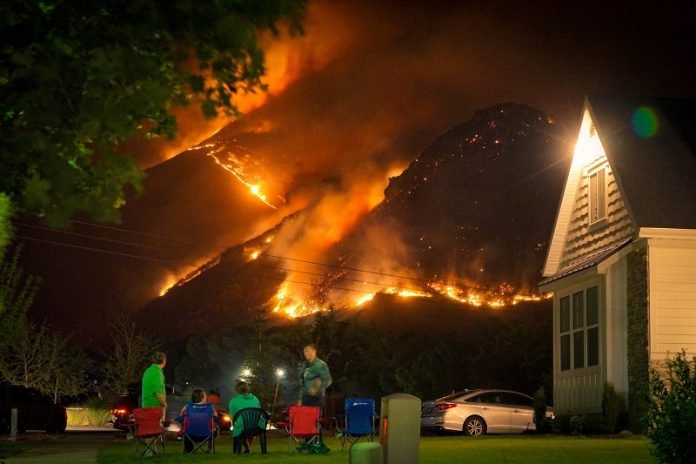
Wildfires are scary, and the smoke they produce can cause real health problems.
Annie Doubleday, a researcher who has worked on air quality, doesn’t want to scare you more, but she does want you to know the risks.
Her research, along with others from the University of Washington, shows that more people end up in the emergency room because of health issues when there’s wildfire smoke in the air.
What’s surprising is that it’s not just kids and elderly people who are at risk. Even adults between the ages of 19 and 64 face health problems due to wildfire smoke.
According to the researchers, these findings should make us rethink how we warn people about the risks of smoke exposure. It means everyone needs to be cautious and take steps to stay safe.
What The Studies Found
Two studies were conducted. The first, led by Doubleday, looked at hospital data from across Washington state.
It found that after a wildfire smoke event, emergency room visits for breathing issues like asthma went up in the next five days.
There were also more cases related to heart issues. The more smoke in the air, the more people got sick.
The second study, led by Daaniya Iyaz, focused on the health of kids. The research found that kids also had a higher chance of ending up in the hospital during and after a wildfire smoke event.
Parents need to keep an eye on their kids even days after a smoke event, especially if they have other health conditions.
Both studies make it clear: wildfire smoke is dangerous for everyone. Whether you’re young, old, or in between, you should be careful when there’s smoke in the air.
How to Protect Yourself
Knowing all this, what can we do? Well, first, don’t think you’re too strong or too young to get affected by the smoke. Take precautions. For example, try to stay indoors and keep the air inside your home clean.
Pay attention to how you’re feeling and seek medical help if you start to have symptoms like difficulty breathing or chest pain.
Doubleday sums it up well: “We’re all at risk of health impacts.
Obviously some more than others, such as those with pre-existing respiratory or cardiovascular conditions, but we all should be taking steps to reduce exposure and watching for any symptoms.”
The Bigger Picture
These studies aren’t just for researchers or doctors. They are meant to help everyone understand the risks of wildfire smoke.
The hope is that this information will help communities prepare better and stay safer during wildfire seasons. Because the better we understand these risks, the better we can protect ourselves and our loved ones.
If you care about lung health, please read studies about marijuana’s effects on lung health, and why some non-smokers get lung disease and some heavy smokers do not.
For more information about lung health, please see recent studies about how to minimize lung damage in COVID patients, and results showing this existing drug can save damaged lungs in COVID-19.
The study was published in Environmental Research: Health.
Follow us on Twitter for more articles about this topic.
Copyright © 2023 Knowridge Science Report. All rights reserved.



